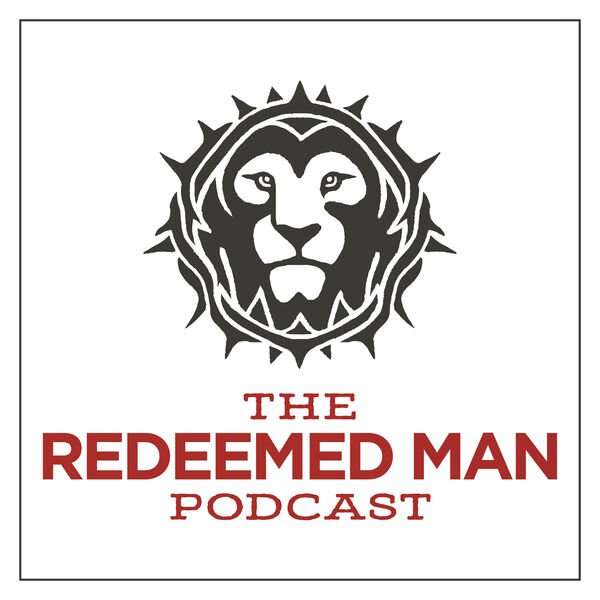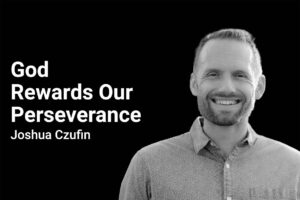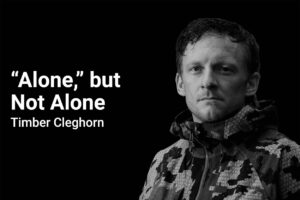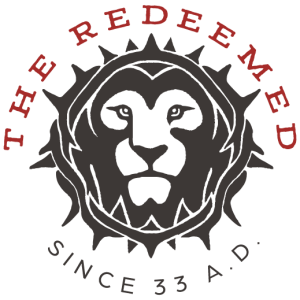Being Honest About What’s in Our Hearts

More About The Podcast
- About
- Show Notes
About The Podcast
For the longest time, Pedro LaTorre avoided addressing what was in his heart. Childhood abuse and blaming himself for his parents’ divorce drove Pedro to perform as a way to prove his worth. But when a major arm injury prematurely ended his baseball career, Pedro’s search for a new identity drove him to engage more deeply with his feelings. In the process, he built the kind of meaningful relationship with God that he’d desired for a long time.
Listen in as Pedro discusses the problems we cause by dealing superficially with our feelings—as well as the tremendous rewards we can reap when we fully address what’s in our hearts.
Show Notes
Additional Resources
Pedro’s organization, Tin Man Ministries
Timestamps
0:00—Intro/A little bit about Pedro’s wife and kids
3:21—How abuse, divorce, and a need to perform colored Pedro’s childhood
6:48—The end of one identity for Pedro and the search for a new one
14:37—What does redemption mean to you?
17:58—Being honest with one’s feelings as a way draw closer to God
27:05—How emotional honesty and healing strengthen our relationships with others
42:01—A father’s responsibility to help his kids deal with emotions in a healthy way
54:48—What’s next for Pedro and his ministry
Focus Verse:
“Love the Lord your God with all your heart and with all your soul and with all your mind and with all your strength.” Mark 12:30
Discussion Questions:
- In your life, have you ever found yourself in a situation like the one Pedro faced after his baseball injury—denied the identity you’d always assumed was yours, and forced to find a different one? What event was the catalyst for that life upheaval? In your search for a new identity, what “wrong turns” did you make, and why do you think those attempts at creating a new identity were unfulfilling?
- Take a look at the “Eight Feelings” chart Pedro talked about (available at sagehill.co/blog/eight-feelings). Pick out a few of the feelings that figure most prominently in your life right now. Are you viewing those feelings as gifts and opportunities for growth, or are they turning into impairments? Is there anything you can do to turn those impairments into gifts?
- Think back to a significant disappointment, failure, or tragedy you suffered that at some point you thought you’d healed from, only to realize later that you hadn’t. Did you allow other people’s pity or sympathy to take the place of true healing? How did that affect your relationships with those people?
- Pedro states that true emotional honesty means you’ll have fewer friends, “but the ones you have will make you feel like you’ve got an army behind you.” Did that statement inspire or energize you, or did it make you worried and apprehensive? Why?
- When you experience a setback or obstacle in your life, are you more likely to diminish your feelings (“We don’t need to talk about it, it’s not a big deal”) or exaggerate them (blowing them out of proportion and making yourself more stressed out in the process)?
- You’ve taken an important step by participating in The Redeemed’s small groups, but as Pedro says, we don’t build deep friendships simply by going to regularly scheduled meetings or gatherings—we build them by taking the “risk” of being fully open and honest with others. Do you engage with the other men in this group outside of the group? What sorts of things do you talk about—are they mostly superficial, small-talk-type subjects, or do you feel empowered to discuss deeper topics like the ones addressed in these groups?
- Of the “four domains” Pedro talks about—mind, body, heart, and spirit—which would you say you spend the most time and effort developing? Which domain do you focus on the least? If it’s the heart, what are some things you could do to address it and engage more directly with your feelings?
Search Podcasts
Enjoyed This Episode?
Discover more inspiring episodes of The Redeemed Man Podcast wherever you tune in!
Share This Podcast
Sign up for updates
When you sign up for this mailing list, you’ll receive regular updates for The Redeemed.
More From The Redeemed Man Podcast

God Rewards Our Perseverance
Colorado pastor Joshua Czufin talks with Nate Dewberry about pushing through personal hardship and moving past hesitation to fully engage in spiritual communities.

“Alone,” but Not Alone
Having spent three months in the Canadian Arctic on the survivalist reality show Alone, Timber Cleghorn shares what he learned about God, himself, and finding peace.

Don’t Wait for Community to Come to You!
Fourth-generation minister Josh Ellison looks back on his years in youth ministry, sharing what impacted young people seeking God, and looks ahead to a significant new leadership role.









